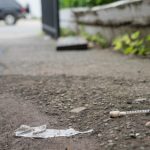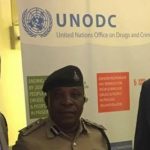Richmond Injecting Centre Approved: An Interview With YDHF’s Greg Denham

Victorian premier Daniel Andrews has finally approved the two-year trial of a safe injecting centre in North Richmond. The announcement came in the wake of newly released figures that show 34 overdose deaths have already occurred in the local council area so far this year.
Statewide there were 190 deaths attributed to heroin last year, which are numbers that haven’t been seen in Victoria since the late 1990s. And the area around North Richmond in the City of Yarra is the epicentre of the crisis. Between 2009 and 2015, there were 96 drug-related deaths locally.
The trial will be modelled upon a bill that Victorian Reason MLC Fiona Patten introduced into parliament on February 8. A parliamentary inquiry into the Pilot Medically Supervised Injecting Centre Bill 2017 tabled its report on September 7, recommending the trial take place.
The safe injecting centre will be run at North Richmond Community Health Centre, which already operates a needle and syringe program. And an expert panel will oversee the trial, with former Victorian premier Jeff Kennett as its chair.
It’s evidence-based
Mr Kennett has been vocal proponent for a safe injecting facility in Melbourne, since he visited Sydney’s Uniting Medically Supervised Injecting Centre (MSIC) in early 2015. The Kings Cross facility was opened as a trial back in 2001, when the local area was suffering a similar overdose crisis.
Due to its resounding success, the MSIC became a permanent fixture in 2010. Ambulance call-outs in the Cross had dropped by 80 percent. Reports of public injecting and discarded syringes had halved. Robbery and property offences were down, and there was no increase in drug offences.
Six thousand potentially fatal overdoses have been prevented in the Kings Cross MSIC. Dr Marianne Jauncey, the medical director of the facility, has pointed out that there’s never been a fatal overdose at any of the 90-odd safe injecting centres around the world.
These facilities cater for some of society’s most marginalised people, and act as a vital gateway to services that they might not otherwise come into contact with. Medically trained staff can introduce clients to drug treatment programs, healthcare and mental health services.
Legal provisions
In 1999, a bill was passed in the NSW parliament that inserted Part 2A into the Drug Misuse and Trafficking Act 1985. It set out the framework for the initial trial, which included special provisions so that certain amounts of illicit substances can be lawfully present in the centre.
Section 36N of the Act provides that it is not unlawful for a person at a licensed injecting centre to be in possession of, or to administer, a small quantity of a prohibited drug. While it also provides that police officers can exercise discretion not to charge a person traveling to or from the centre.
At the forefront of the campaign
Greg Denham, executive officer of the Yarra Drug and Health Forum, has been advocating for the establishment of a safe injecting centre in the Richmond area for years now. He’s also a former Victoria police senior sergeant, so he understands the complexities of setting up such an operation.
Sydney Criminal Lawyers® spoke with Mr Denham about the urgent need for the trial to get up and running, the reasons for the turnaround in the position of the Andrews government, and the grassroots support the safe injecting centre has locally.
Greg, you’ve been campaigning for a long time to see a safe injecting facility trialled in North Richmond. What was your reaction to hearing it’s actually going to become a reality?
Obviously, very happy, given that the forum has been involved in campaigning for well over a decade. In fact, if you look back at the history of the forum, we’ve been involved in putting up an injecting room as a policy option for over twenty years.
We were there in the mid to late 90s, when there was a massive amount of heroin around and lots of overdoses. We were advocating then for an injecting room.
It’s really built up momentum over the last ten years. I’ve been involved since 2010, when I took over as executive officer. It’s been a long campaign. And at times it’s been a bit like a roller coaster. But, it’s a great outcome.
So, the forum has been advocating since the mid-90s?
There was a lot of heroin around back in the mid to late 90s. And there was a huge number of overdoses right across Victoria. In fact, right across Australia. So, we really pushed for an injecting room then.
When the Bracks government came in in the late 90s, the proposed legislation to get them up was defeated in the upper house. Then the heroin started to dry up due to changes in supply in Southeast Asia, which moved more towards amphetamines.
So, the heroin started to dry up – the so-called heroin drought – and it went back to a normal level of supply. But, we knew that heroin was still around. There was still a lot of open drug markets.
What happened in North Richmond/Abbotsford was the market survived. That was in North Richmond, Abbotsford and Yarra. We’ve seen a gradual growth of the market to the extent now that people come from all over Melbourne to buy and use drugs in that area.
And there’s been an escalation in overdose deaths in the last four to five years. It’s culminated in a heroin toll, which will soon be greater than the road toll in Victoria.
Is there a reason why it’s more readily available on the streets again? As you said, it did dry up in the early 2000s.
It’s hard to say. There’s certainly been an increase in overdoses over the past years. And some of that has been linked to pharmaceutical drugs, particularly high-level opioid-type substances, such as oxycodone and Oxycontin.
I don’t know if it’s a particular cohort, or a particular trend, but certainly there seems to be increased harm around injecting drug use. I don’t know if there’s more available. But, certainly we hear from police that there is more available now. Heroin seems to be having a bit of a resurgence.
We’re at the whim of the world market, so it’s difficult to determine exactly why there has been this surge of overdose deaths. But, if you look back in history, last time there was a surge, certainly availability increased, and purity increased as well.
It’s a range of factors. And unfortunately, this has impacted significantly upon the 2 percent of the population that are regular injecting drug users.
Part of the issue is that some people inject ice, and some people inject heroin. But often, there’s crossover between the two. When people can’t get ice, they’ll inject heroin, and vice versa. So, there’s a bit of a crossover there between the two drugs.
It’s a difficult thing to put your finger on. Why are we having this increase in overdose deaths?
A lot of people think that it’s a cohort of people. And it seems to be an older group as well. There seems to be older people overdosing and dying. A lot of it’s linked to pain management. People who have chronic pain.
And others who are street based drug users who are disadvantaged and chronic in their drug use.
But, the Andrews government was set against the trial, even after the parliamentary inquiry made its recommendation. What was the catalyst, do you think, that brought the government to this turnaround?
There’s been a range of factors. We know that the coroner’s report quite clearly stated a recommendation about an injecting room. And there was another report being released this week that recommends one.
There’s been pressure from residents, and that’s been quite significant. Two or three years ago, most of the residents that I ran into seemed to just want more police. They wanted to get rid of the problem.
But now, particularly in the last 18 months to 2 years, they’ve realised that the problem is not going to go away.
The market there has become more and more entrenched. There’s more organised criminal groups involved in drug trafficking. Probably five years ago, it was more people coming out of the high-rise flats.
Certainly, the number of people that are dying has been a significant issue. These people’s stories have influenced others.
The police have also recognised that no matter how many resources they throw into the issue, it’s not having an impact.
It’s been a combination of a lot of factors. And an ongoing campaign to say, “Look, there’s litter on the streets. And there’s people that are drug affected.” Traders have also recognised the value in getting the injecting room up and running to get the problem off the streets.
Politically too, it’s opportune in terms of the upcoming by-election in Northcote. It was always going to be a political decision. But, the decision now, has been very much influenced by the political situation.
Sometimes it’s about the planets aligning and they’ve aligned in the last couple of weeks.
An initial report on the radio about the trial going ahead had a statement by police that said they would need enhanced powers when dealing with the safe injecting room.
Do you think extra provisions have to be made for police?
Well, there’s certainly no provisions for extra powers in Sydney. The police are able to police it quite well up there. Effectively, they stay away from the perimeter. And they only patrol within the perimeter when they’re required to.
They don’t target the program up there to enforce the provisions of the Drugs Act. There’s legislation that provides people with an exemption around the possession of drugs within the vicinity. So, there doesn’t seem to be any issues as far as policing the Sydney centre is concerned.
I don’t know what additional powers the police would want here. They’ve already got additional powers in terms of added penalties when it comes to trafficable amounts of drugs. They could quite easily support this particular facility without the need of additional powers.
A bit of common sense policing in support of this centre is needed. And the acknowledgement that policing activities that deliberately target these sorts of programs are in contrary to government policy and better health outcomes.
So, police could quite easily develop a set of protocols that would support the centre when it’s set up.
As you mentioned, there were provisions in Sydney that were brought in to prevent possession and use around the injecting centre. I gather similar laws will be legislated in Victoria?
Well, that’s right. You’d have to have legislation that exempts people while they’re using in that particular facility. You can’t have a law that basically makes the possession and use of drugs illegal, and then set up a facility and not change the law.
You have to change the law, and look at implementing a law like they have in NSW, where people who are bona fide using that centre are exempt from prosecution while they’re in it.
And in Sydney, they haven’t found that people are traveling significant distances with drugs in their possession to use at that centre. It’s mostly providing a service to people that live in the area that may have to travel a short distance to it.
But genuinely speaking, police support the centre and they understand that people are going to be walking into it with drugs, so they don’t enforce the provisions of the law.
It would be counterproductive and harmful for the police to target that particular program to enforce the law
And you said support in the community has been growing over recent years. How’s the community’s reaction been over the last couple of days?
It’s been really positive. I’ve met with people from the City of Yarra. I’ve spoken with residents. I’ve spoken with the people that run the North Richmond Community Health Centre, and they’ve very happy.
I haven’t met anybody yet who is opposed to the idea. I think there are people who don’t like the idea. But, there are many more that recognise that something needs to be done. What’s been done in the past isn’t working, and we need a new approach.
It’s about reducing the harms for everyone in the community, not just the people who use drugs.
And lastly, the decision has been made to carry out the trial. What’s the next step from here? When will it be up and running?
They’ve said that they want it up and running by the middle of next year. The timelines are very tight.
There are some concerns about some of the criteria that’s been proposed. Particularly, the one about people only using heroin will be allowed in. There are concerns about that.
That’s a criterion which will have significant impact on people using the centre. No other supervised injecting facility worldwide has that requirement. It needs to be open to people who are injecting drug users and they bring their own drugs in, whether that is ice, heroin or any other substance.
With the way drugs are available, sometimes heroin is available, and sometimes it is not. Sometimes people use ice and sometimes they use heroin.
I don’t know how you can run a centre like that. They’re building up relationships, getting to know the clients, then the clients are feeling comfortable and walking in there everyday.
Then one day someone walks in with heroin and wants to use it and it’s OK. But the next day, there’s no heroin available, so they use ice. And then they’re excluded. I don’t think that will work.
There’s been a push by harm reduction advocates to actually expand these facilities so they make provisions for people who are smoking ice as well.
The whole idea of a consumption room involving smoking, that’s something down the track we should consider.
But, in terms of the area around North Richmond, it is injecting drug use that is causing the harms. So, we are going to focus on that at the moment.
There’s an expert committee that’s going to be set up. If they listen to the evidence and the experts, then they will set it up in a way that is successful.
And down the track we can look at other strategies, such as consumption rooms if there is an obvious need.
Greg, thanks very much for taking the time out to have this chat today.
Thank you.







